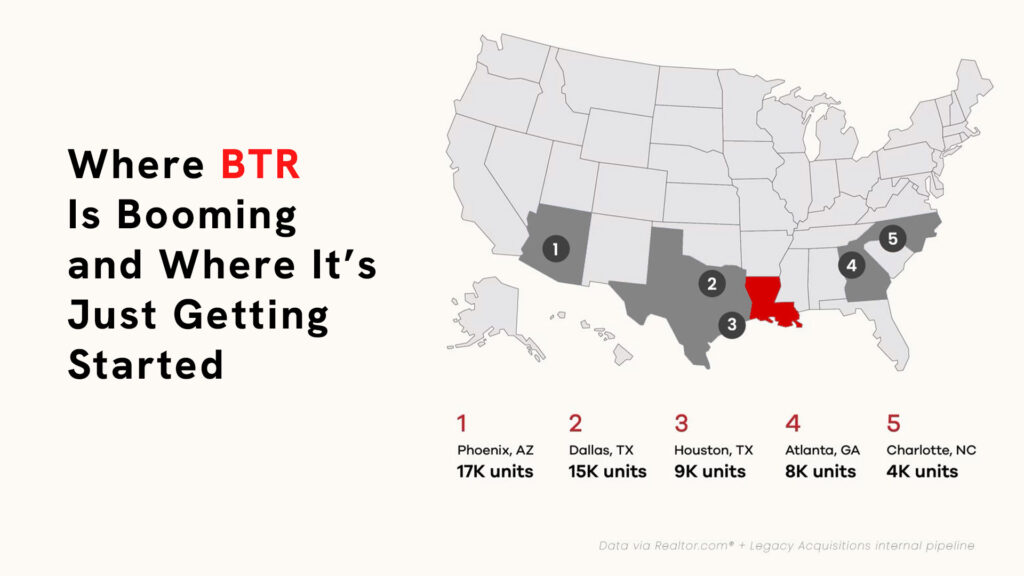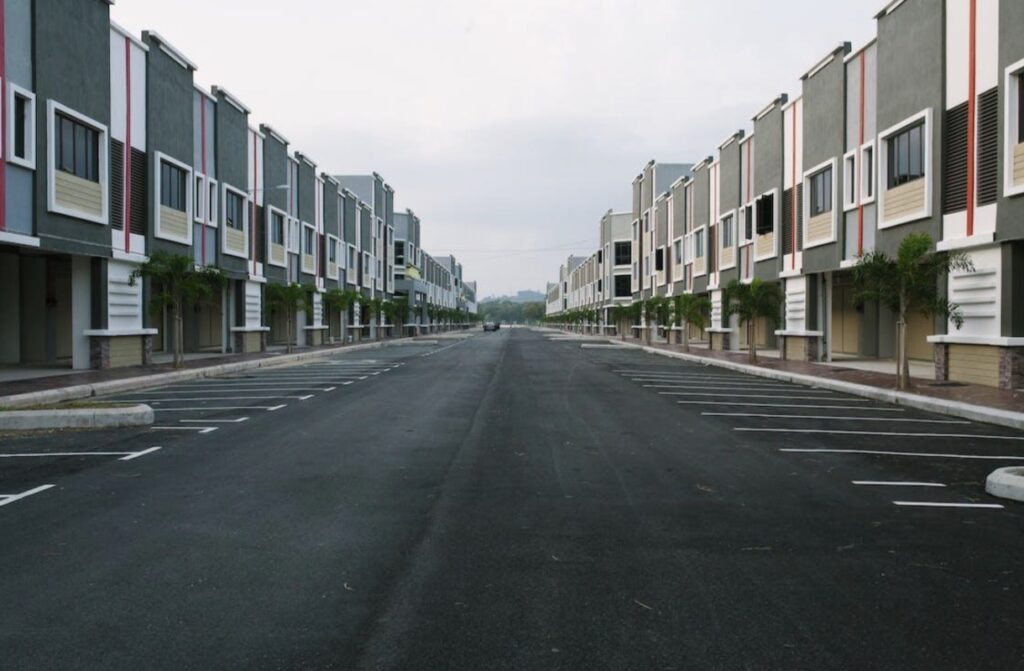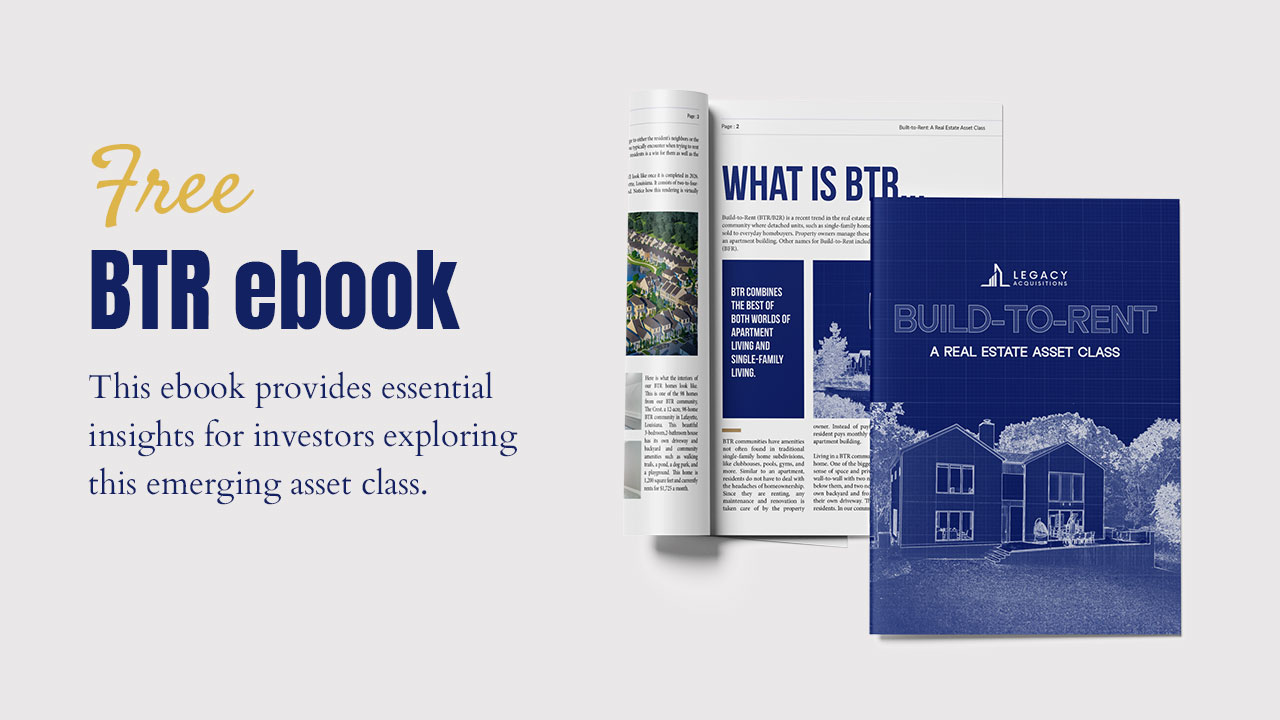Blog of the Month
Build-to-Rent Regulations
October 20, 2023

The real estate market has undergone a significant transformation in recent years, with build-to-rent (BTR) properties emerging as a prominent and innovative sector within the industry.
BTR refers to purpose-built rental communities designed for long-term occupancy, offering an attractive alternative to traditional homeownership. However, the regulatory landscape for BTR properties varies by region and can significantly impact developers and investors.
Let’s discuss some of the regulations for BTR properties and legislations that may influence the sector.
Understanding Build-to-Rent Properties
BTR developments are different from conventional rental properties or multifamily apartments in that they are purpose-built for rent, often offering a more tailored and appealing living experience.
These communities may encompass single-family homes, townhouses, or apartment complexes designed with the intention of long-term rental occupancy. BTR communities typically offer amenities and services to enhance residents’ quality of life, setting them apart from traditional rental options.
Regulations Around Build-to-Rent Properties
The regulations around real estate – and thus, BTR properties – can vary across regions, which makes it very important for developers and investors to understand what rules apply to them.
Local Zoning & Land Use Regulations
Local governments play a significant role in shaping the BTR landscape. Zoning regulations, land use policies, and permitting requirements can substantially impact where and how BTR developments can be built. Understanding and complying with local zoning ordinances is fundamental to a successful project.
Building Codes & Safety Standards
Compliance with local building codes and safety standards is imperative. BTR developers must meet the same construction and safety requirements as traditional housing developments. This ensures the safety and well-being of residents.
Tenant & Landlord Laws
BTR developers and operators must adhere to tenant and landlord laws, which can vary by jurisdiction. These laws often cover areas such as rent control, lease terms, eviction procedures, and tenant rights. Keeping up to date with local rental laws is essential for successful BTR operations.
Tax Regulations
Tax considerations for BTR properties are also vital. These include property taxes, income taxes, and any potential tax incentives or abatements that may apply to encourage BTR development.
Fair Housing Laws
Compliance with federal fair housing laws, such as the Fair Housing Act in the United States, is necessary to prevent discrimination in tenant selection and rental practices.
Affordable Housing Initiatives
In response to growing concerns about housing affordability, many regions, including Colorado, are considering or implementing affordable housing mandates for new developments, including BTR properties.
These mandates may require a percentage of units to be offered at reduced rents to meet the needs of lower-income renters.
Rent Control Laws
In some areas, there have been discussions about implementing or extending rent control measures. Such laws may restrict the amount by which landlords can increase rents, which could affect the revenue potential of BTR properties.
Incentives for BTR Development
Some governments offer tax incentives or regulatory relief to encourage BTR development, recognizing the potential of this sector to address housing shortages and provide quality rental options.
Environmental Regulations
There is a growing emphasis on environmental sustainability in construction and property management. Regulations related to energy efficiency, waste reduction, and sustainable building practices may impact BTR development.
Regulations change as societies do; the rules and requirements around build-to-rent properties are constantly evolving as the needs of people change. Anyone involved in the sector needs to stay up to date on regulations to avoid trouble later on.
By staying informed, remaining compliant, and adapting to changing regulations, the BTR sector can be developed sustainably, leading to significant profits for investors.





